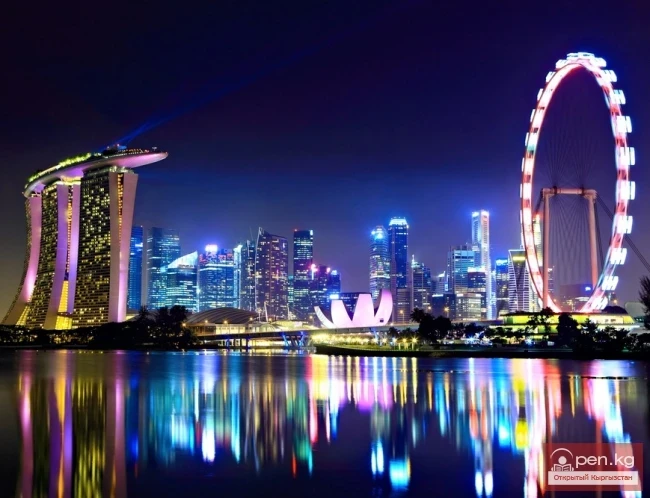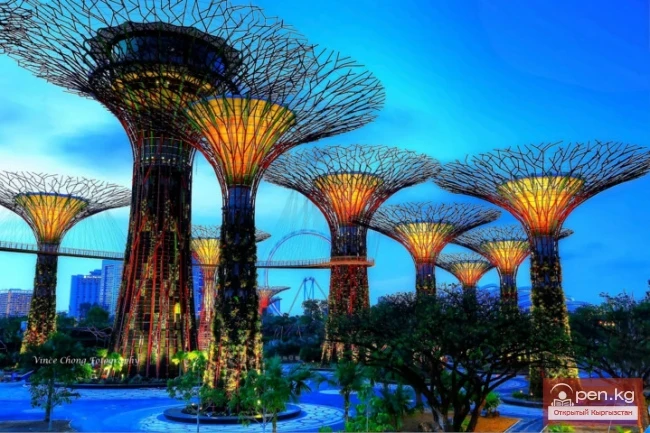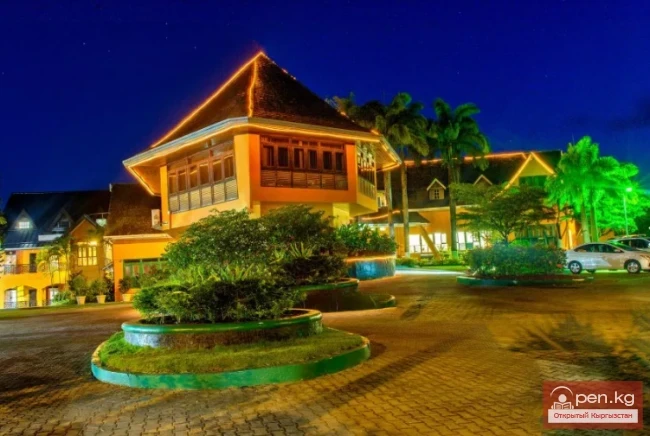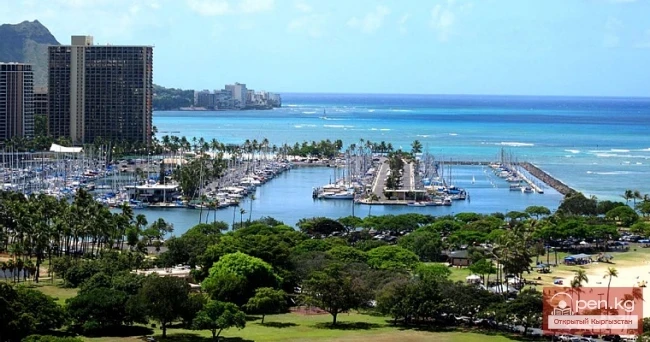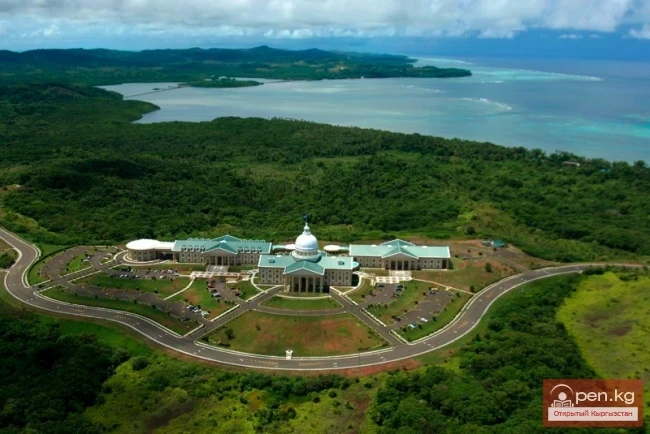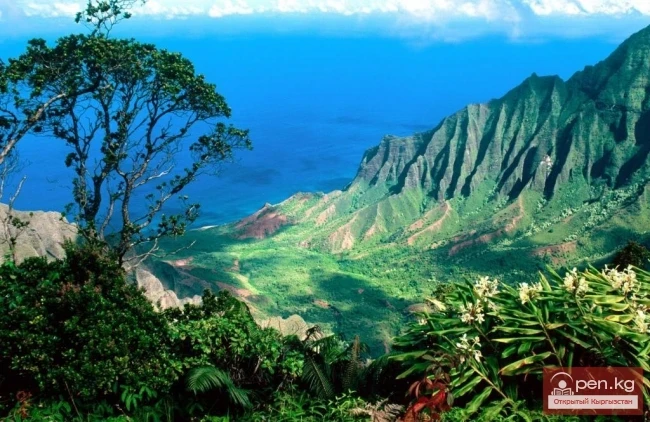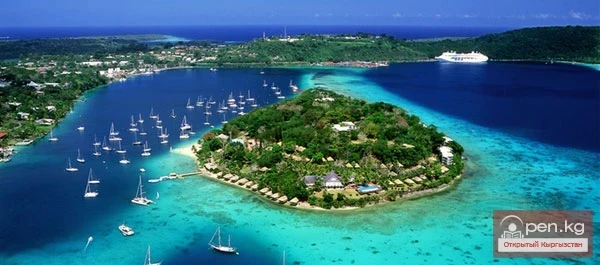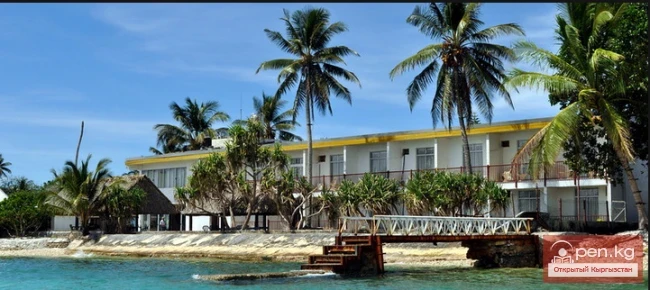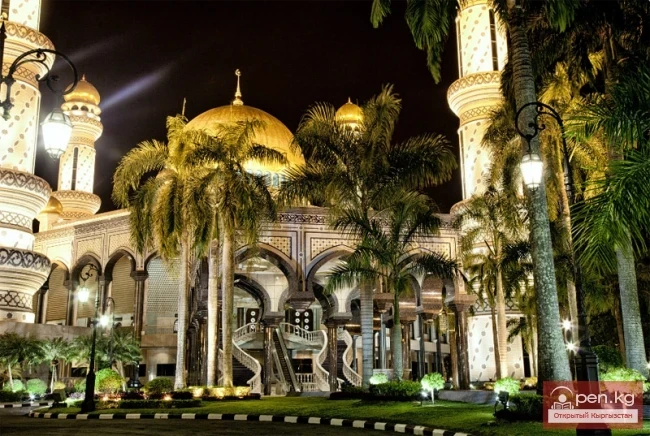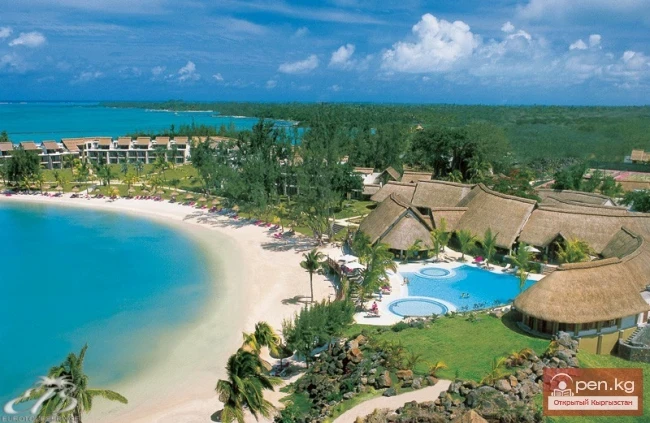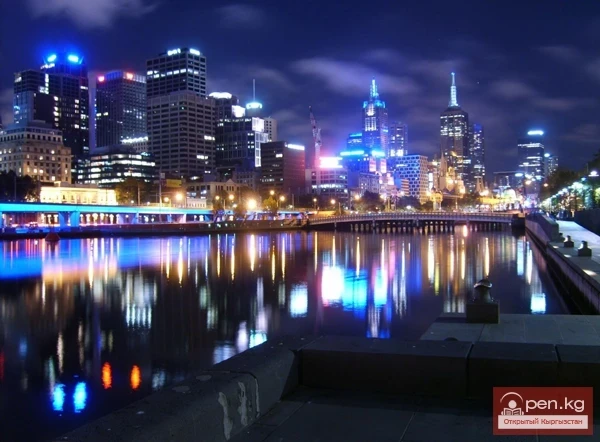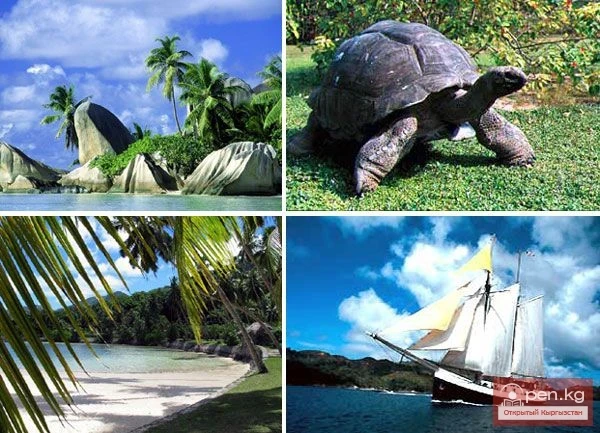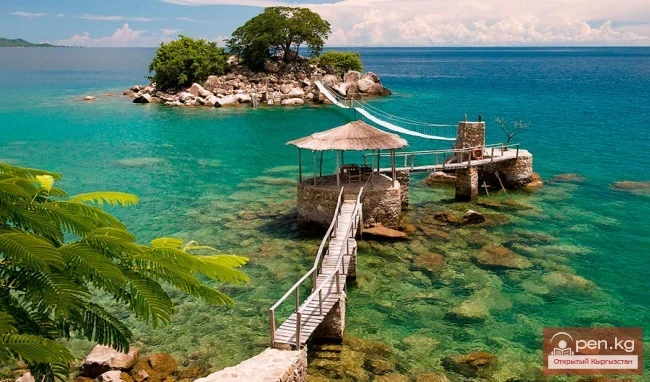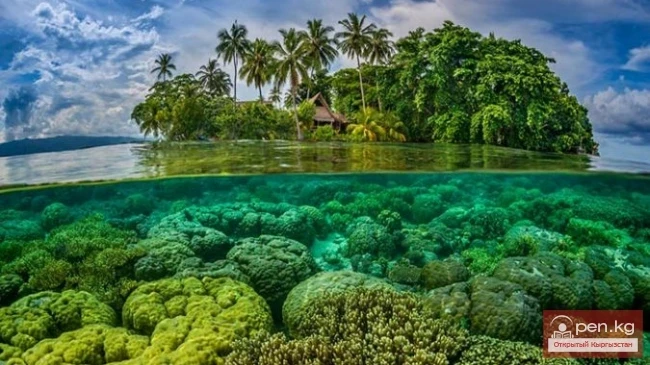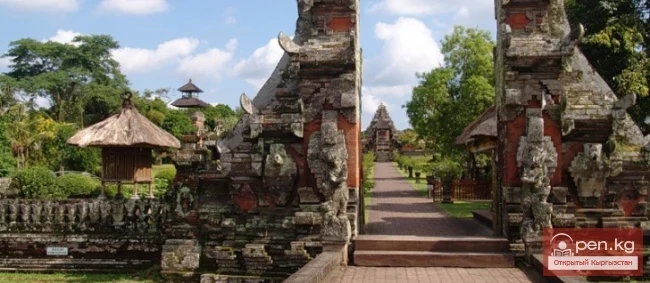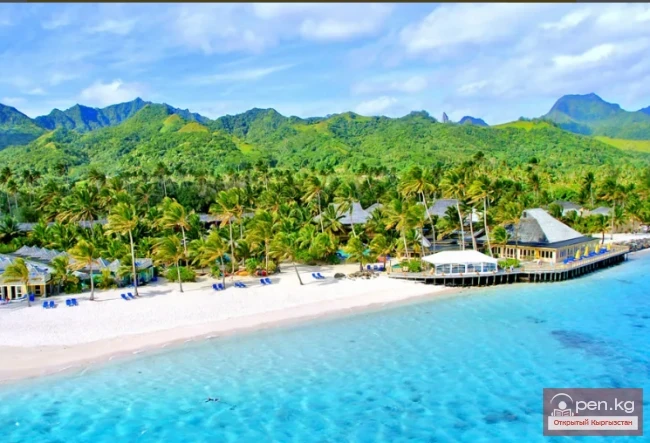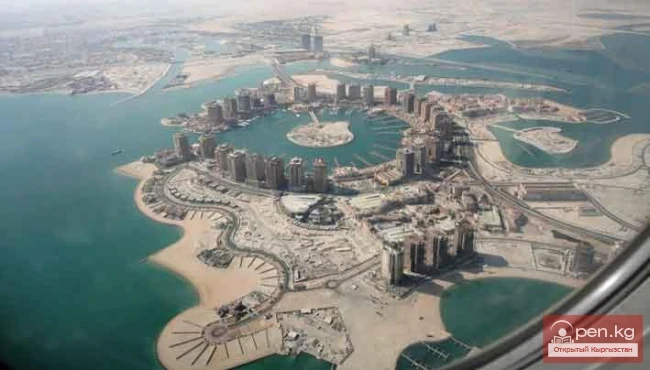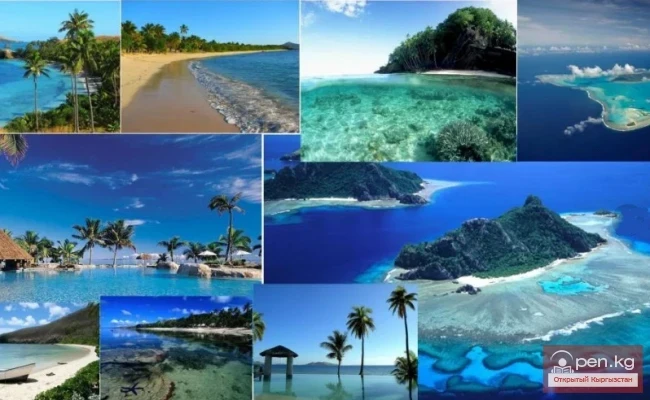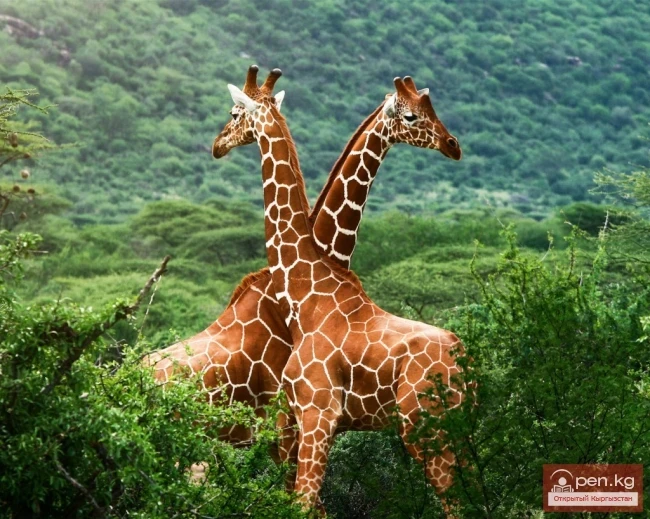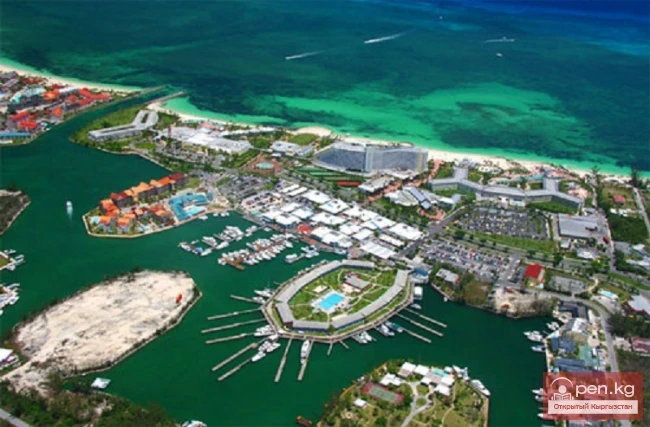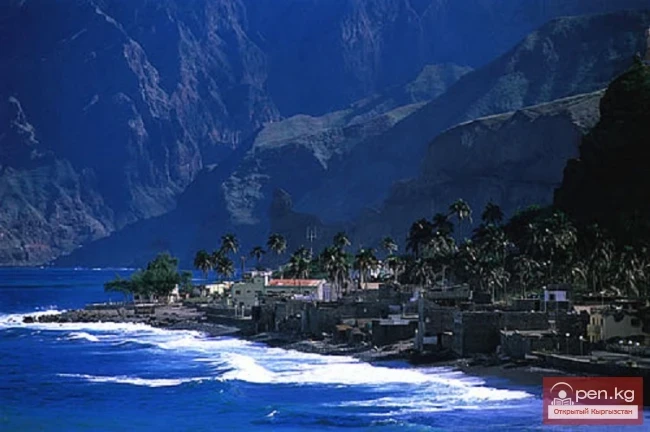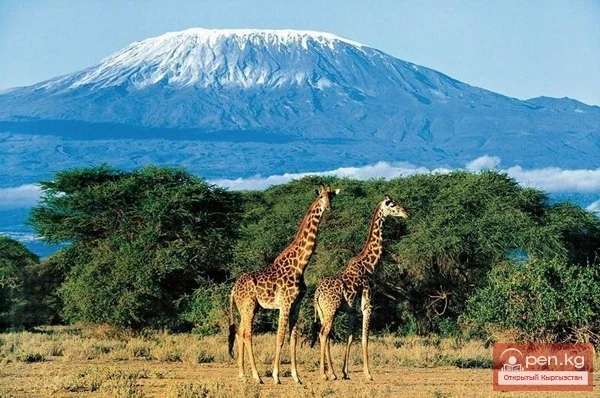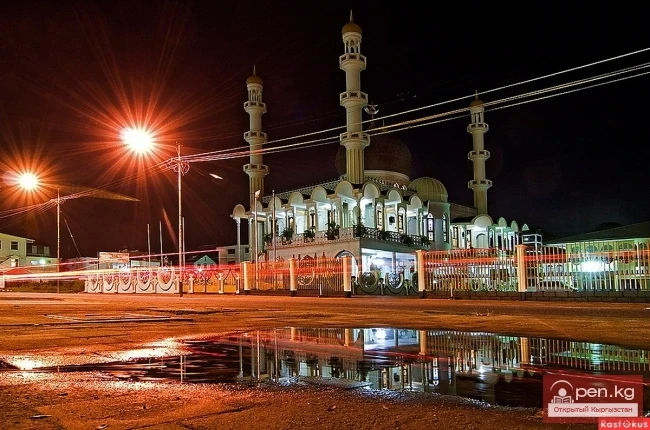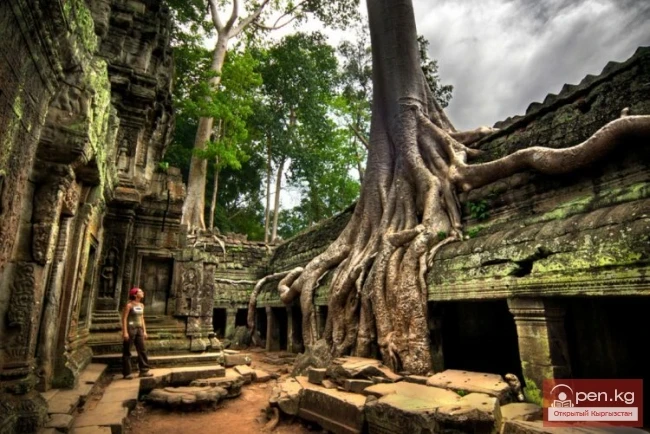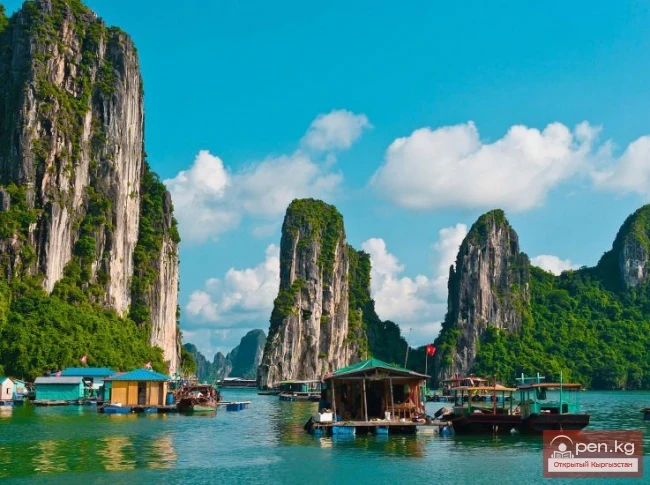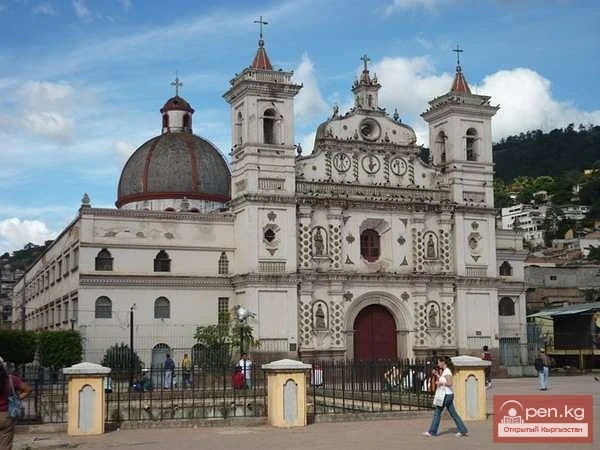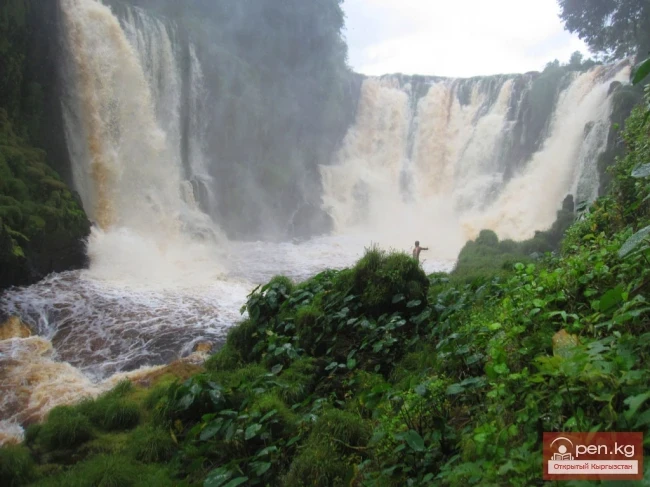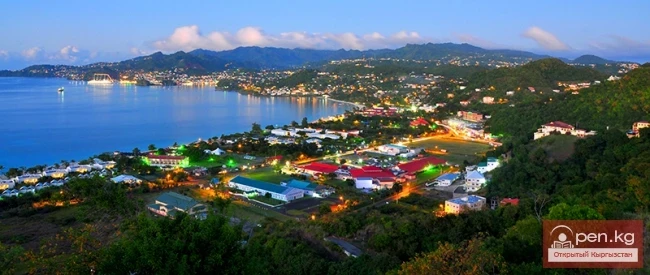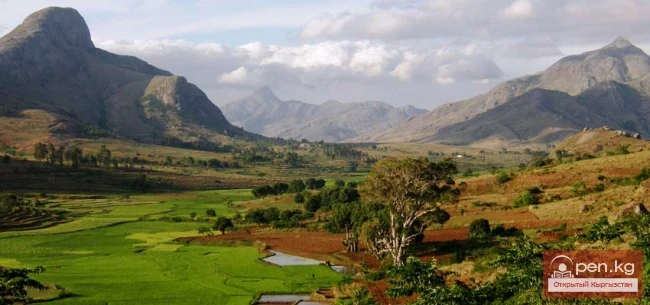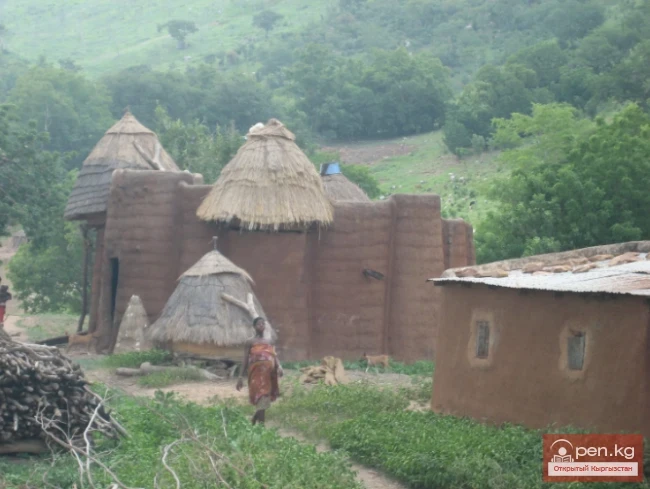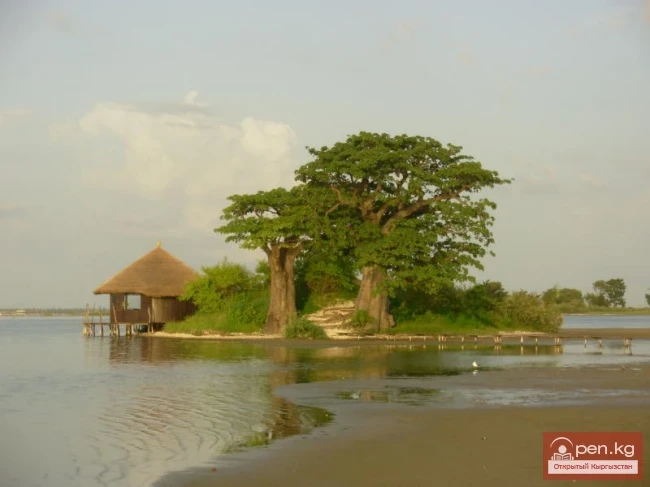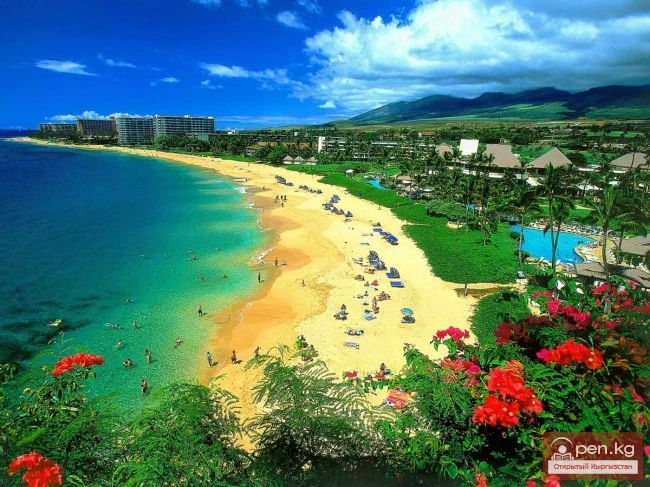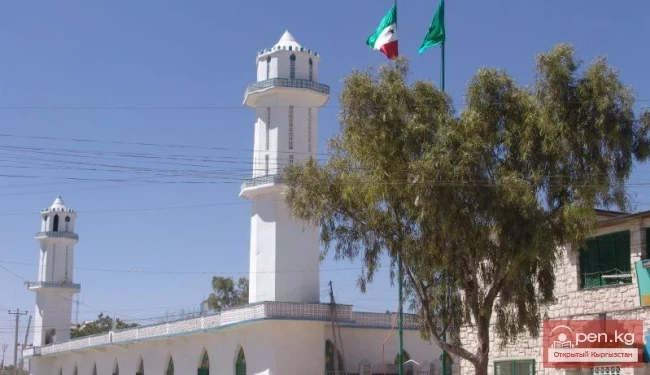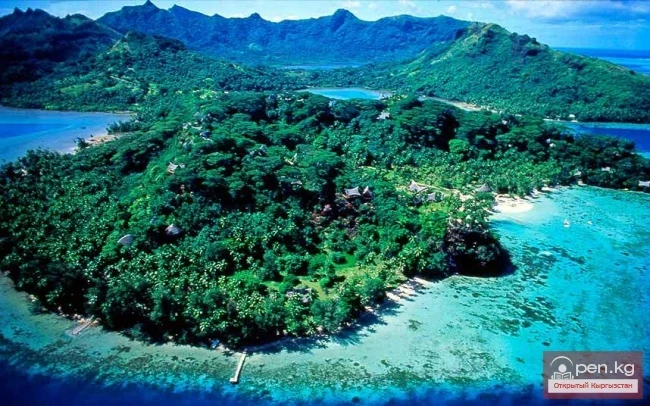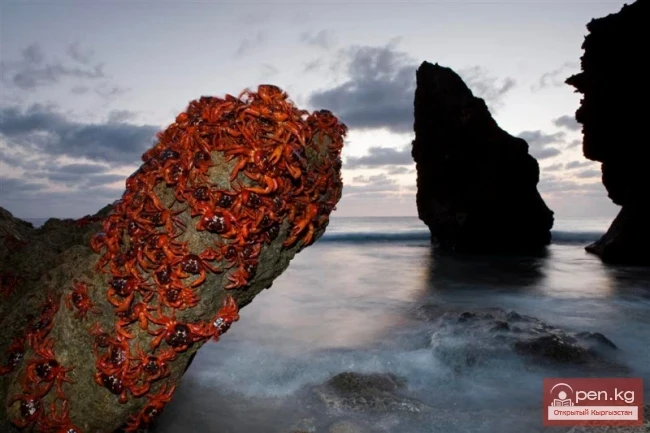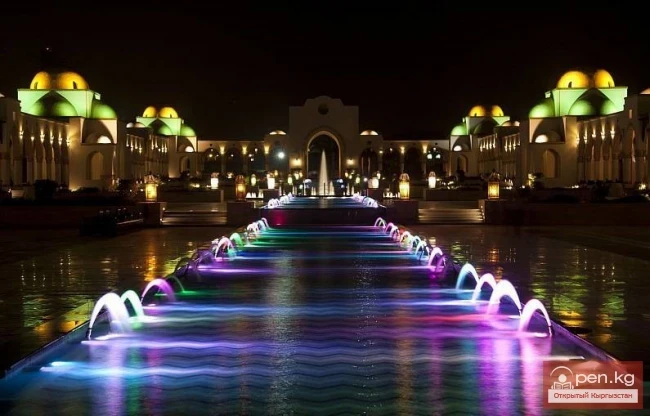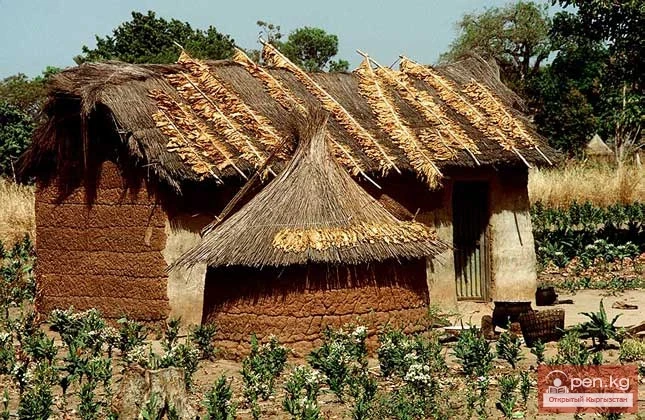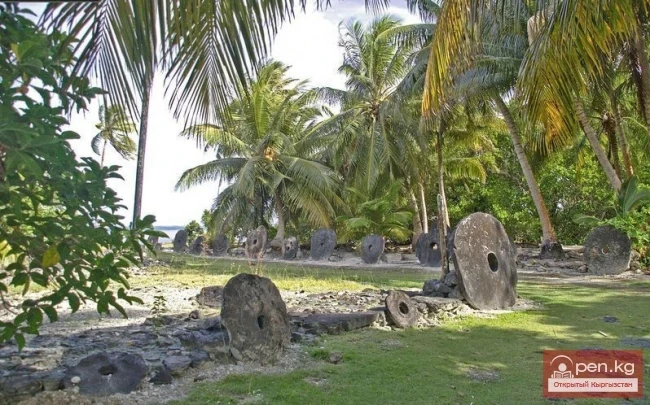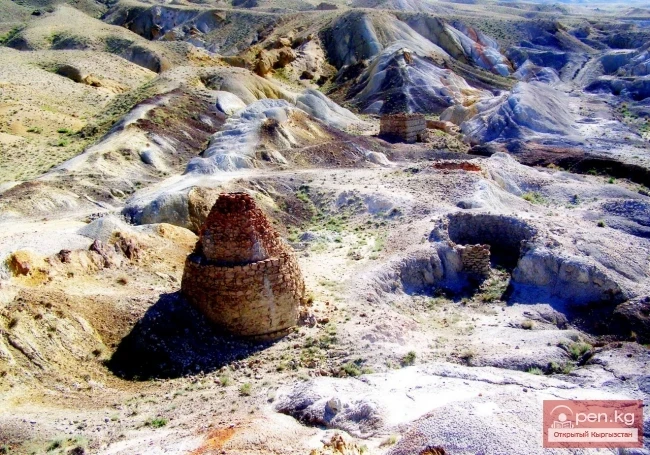SINGAPORE. Republic of Singapore
An island nation in Southeast Asia, located at the southern tip of the Malay Peninsula. It is separated from the Malay Peninsula by the Johor Strait (through which a transport dam is built), and from the islands of Indonesia by the Singapore Strait. The name Singapore is derived from Sanskrit and means "City of the Lion." This name is shared by the island, river, city, and state.
In addition to the main island, there are over 50 small islands. The total area is 697.1 km². The capital is Singapore.
Population - 4.18 million (2004), of which Chinese make up 77.3%, Malays 14.1%, Indians 7.3%, and representatives of other nationalities, including Europeans, 1.3%. The official languages are Malay, English (administrative), Chinese, and Tamil. The main religions are Buddhism, Islam, Christianity, Hinduism, and Confucianism. The currency is the Singapore dollar.
Diplomatic relations between the USSR and Singapore were established on June 1, 1968. On January 2, 1992, Singapore announced its recognition of the Russian Federation as the successor state to the USSR.
The national holiday is August 9 - National Day (the date of independence in 1965 after leaving the Federation of Malaysia).
The parliament is unicameral (deputies are elected by mandatory universal voting for a term of 5 years). The head of state is the president, elected by direct popular vote for a term of 6 years. Since September 1999, the president has been S. R. Nathan. In August 2005, he was re-elected for another term. The post of Prime Minister has been held by Lee Hsien Loong since August 2004. Lee Kuan Yew, the former Prime Minister (1965-1990), currently serves as Minister Mentor in the government and is the father of the current Prime Minister. He is referred to as the "father of the nation," the founder and creator of modern Singapore.
Since the formation of independent Singapore, the People's Action Party (PAP) has been continuously in power.
In addition to the PAP, 22 political parties are officially registered, but they do not play a significant role in the political life of the country. In the 2001 parliamentary elections, the PAP once again achieved a convincing victory, winning 82 out of 84 seats in parliament (9 seats belong to appointed members of parliament).
Trade union association: National Trades Union Congress of Singapore. It is a member of the International Confederation of Trade Unions.
The government pays close attention to national issues as a crucial component of strengthening national security and maintaining political stability in the country, ensuring harmony in inter-community and interfaith relations.
Until 1819, the island belonged to the Sultanate of Johor (a state in Malaysia). From 1942 to 1946, it was a colony of Great Britain. From 1942 to 1945, it was occupied by Japan. Since 1959, it has been a "self-governing state" within the Commonwealth, led by Great Britain. From 1963 to 1965, it was part of the Federation of Malaysia. Independence was proclaimed on August 9, 1965.
Member of the UN (since 1965), ASEAN (since 1967).
Singapore is the most economically developed country in Southeast Asia. Together with Taiwan and the Republic of Korea, it firmly ranks among the "newly industrialized countries." It is a major regional and international center for trade, finance, marketing, services, and the development of cutting-edge technologies, as well as an important transportation and communication hub in Southeast Asia.
To achieve the strategic goal of transforming Singapore into a developed industrial society by 2030, known as the "great small nation," the country's leadership has taken effective measures for the structural reorganization of industry. There is a focus on developing high-tech industries, including computer manufacturing and components, electronic telecommunications equipment, biotechnology, and laser optics.
Developments in computer science and robotics are gaining increasing prevalence in key sectors of the economy and in management. In terms of computerization and the implementation of robots, Singapore ranks second in Asia after Japan (specifically, the provision of Singaporean firms with modern computer technology and access to local and global networks is up to 90%).
Singapore is the third-largest global center for oil refining, after Houston and Rotterdam (over 20 million tons of crude oil per year).
The port of Singapore plays a significant role in the country's economy. More than 400 shipping lines connect it with 607 ports in 128 countries. The number of containers processed in 2004 amounted to 18.7 million units. The international Changi Airport is also significant (passenger traffic - about 25 million air passengers with a capacity of 44 million air passengers). In 2004, Singapore was visited by 8.7 million tourists.
Singapore is a major global financial center. The annual turnover of the Singapore currency exchange exceeds 100 billion USD. In terms of the number of large banks (120), Singapore ranks third in the world after London and New York. The local financial market is valued at 420 billion USD.
Singapore is among the countries with the lowest risk for foreign investments and ranks second in the world in this regard after Switzerland. Foreign investments in Singapore's economy (in the industrial sector (over 70%) and services) exceed 6.12 billion USD. The main sources of investment come from the USA, EU countries, and Japan. A large portion of investments is directed towards the electronics, electrical engineering, and oil refining industries, as well as the services sector. More than 3,500 leading global companies have branches in Singapore, and over 100 multinational corporations have their regional offices here. While attracting foreign investors, the Singapore government also actively encourages local entrepreneurs to invest their capital in other countries. About 60% of all Singaporean investments have been made in Asian countries.
The military industry is well-developed, with products primarily intended for export (firearms, fast patrol boats, radio equipment, ammunition, etc.).
Singapore's gold and foreign exchange reserves amount to 105.7 billion USD (2004). The income per capita is estimated at approximately 30,000 USD. There is no external debt. The internal debt in 2004 was 107 million USD.
GDP growth was 8.1%, reaching 101 billion USD (2004), which is 7.3 billion USD more than in 2003.
The year 2004 was marked by high growth rates in industrial production - about 14%. The growth in the services sector was 8.3%, in transportation - 24%, and in biomedicine - 25.7%. A negative growth rate was noted only in the construction sector - minus 7%.
The inflation rate does not exceed 1.6% (2004). In recent years, the stock exchange has become more active. There has been an increase in the value of stocks and other securities. Notable improvements have been observed in the labor market: in 2004, the government managed to reduce the unemployment rate from 5.5% to 3.4%.
According to government forecasts, industrial production volumes are expected to double in the next 10 years.
Large international trade and industrial exhibitions, scientific and technical symposia, and conferences (up to 750 annually) are widely practiced.
The Singaporean government allocates an average of over 6 billion USD annually for R&D, and about 9 billion USD for education, training, and retraining of personnel.
Agriculture is virtually non-existent. More than 90% of the food products needed by the country are imported. Drinking water and water for technical purposes come from neighboring Malaysia.
The volume of foreign trade in 2004 amounted to 341 billion USD. The main trading partners are Malaysia, EU countries, GITA, China, Japan, and Hong Kong.
In 2004, a trend of increasing trade turnover with the Russian Federation emerged, amounting to 692.4 million USD. Imports from Singapore increased by 49% compared to 2003 (371.8 million USD). Export figures rose by 16% (320.6 million USD). The basis of Russian exports to Singapore consists of mineral products, non-ferrous and ferrous metals. In Russian imports, consumer electronics, machinery, and equipment prevail.
Singapore conducts a dynamic foreign policy characterized by balance and pragmatism, aimed at maintaining stability and security in the Asia-Pacific region, expanding participation in political and economic processes in the region to ensure further economic development and the survival of the country in the context of globalization, and enhancing the country's competitiveness.
The Republic actively participates in the activities of ASEAN and other forums and mechanisms, such as the ASEAN Regional Forum on Security (ARF), the Asia-Europe Meeting (ASEM), and Asia-Latin America (ALAC). Singapore's active participation in the WTO, APEC, and its establishment of a network of bilateral free trade zones (FTAs) reflect the priority of economic diplomacy.
The UN is viewed by Singaporeans as the most effective platform for promoting their interests and addressing key global and regional issues.
In recent years, a positive potential has been accumulated in Russian-Singaporean relations, allowing for the expectation of transitioning bilateral ties to a broader political and economic cooperation framework.
Daily newspapers: "Business Times" (36,000 copies), "Berita Harian" (60,000), "Lianhe Wanbao" (85,000), "Lianhe Zaobao" (200,000), "Straits Times" (400,000).
There are government radio and television services.
